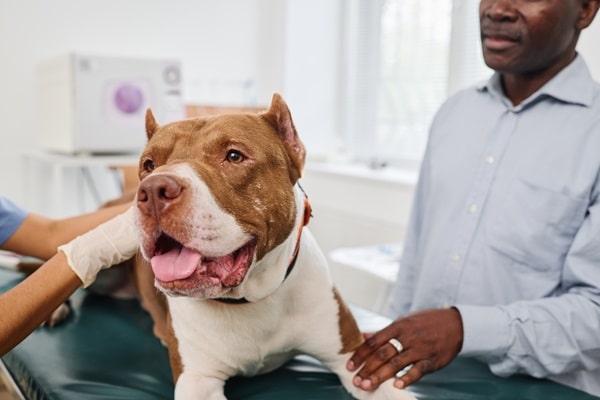Understanding canine genetics and breed origins offers profound insights into the unique qualities and health of your beloved pets. Every dog carries a complex set of genetic codes that not only determine their physical appearance but also influence their behavior and predisposition to health issues. As dog owners, breeders, and enthusiasts, grasping the basics of canine genetics empowers you to make informed decisions about pet care, breeding practices, and even adoption. This article delves into the fascinating world of canine DNA, from the basics of genetic makeup to the impact of breeding on dog health and diversity.
What is Canine Genetics?

Canine genetics is the study of the inherited traits and biological makeup of dogs. Just like humans, dogs have DNA, genes, and chromosomes that dictate everything from fur color to temperament. These genetic elements are passed from parent to puppy, carrying traits that can be predicted and sometimes modified through selective breeding. Understanding these fundamentals is crucial for anyone involved in the care or breeding of dogs.
In addition, the way genes are inherited can affect a dog’s likelihood of developing certain traits or diseases. For example, some genes are dominant, meaning they overshadow other genes and are more likely to determine a trait. Others are recessive and only appear when two copies are present. This genetic interplay is what creates such a wide variety of dogs, even within the same breed, and understanding it can help predict how puppies will look and behave.
History and Development of Dog Breeds

The history of dog breeds is a tale of human society and the roles dogs have played within it. Dogs were one of the first animals to be domesticated, and their partnership with humans led to the development of specific breeds with traits suited to different tasks such as hunting, guarding, and herding. Selective breeding, choosing specific dogs to parent the next generation, has been practiced for thousands of years and has shaped the modern dog breeds you recognize today.
This selective breeding has led to not only the enhancement of desired physical traits and skills but also the intensification of certain genetic traits, which can be both good and bad. While some breeds were developed with a focus on health and temperament, others have been bred with an emphasis on aesthetics or performance, sometimes to the detriment of the dog’s health. This complex history underpins the importance of genetic awareness in breeding practices today.
Genetic Diversity Among Breeds

Genetic diversity is a critical factor in the health and viability of dog breeds. In genetically diverse populations, dogs have a lower risk of inheriting common genetic disorders. Breeds with a vast genetic pool are generally healthier and more robust than those with limited genetic diversity, which can suffer from the effects of inbreeding and genetic bottlenecks.
Unfortunately, some popular breeds have seen their genetic diversity decrease over time due to high demand and breeding practices that favor a specific look over genetic health. This has led to increased health problems in certain breeds. Understanding and preserving genetic diversity is essential for maintaining the health, vitality, and survival of all dog breeds.
Common Genetic Traits in Dogs

Genetic traits in dogs can range from the physical to the behavioral, with many traits being strongly influenced by their genetic makeup. Physical traits like coat color, ear shape, and size are often the most noticeable and are typically used to define and distinguish breeds. These traits are controlled by specific genes, which can be identified and sometimes manipulated through breeding.
On the behavioral side, genetic predispositions are just as significant. Traits such as a retriever’s instinct to fetch or a shepherd’s compulsion to herd are deeply embedded in their DNA. These behaviors have been reinforced over generations through selective breeding. Understanding the genetic basis of these traits can help owners and trainers better manage and direct their dogs’ natural instincts in a positive way.
Genetic Health Concerns

Canine genetics directly impacts the health of dogs, with many breeds predisposed to specific genetic disorders. Conditions such as hip dysplasia, certain types of cancer, and heart diseases have strong genetic components and can be more common in certain breeds due to their genetic makeup. This makes understanding genetics crucial for predicting and managing potential health issues in dogs, allowing for proactive veterinary care and lifestyle adjustments that can significantly improve the quality of life for affected dogs.
In addition to identifying potential health risks, genetic knowledge enables breeders to make informed decisions when selecting mating pairs. This practice, known as health-conscious breeding, aims to minimize the risk of passing on prevalent genetic disorders. Genetic testing plays a pivotal role here, offering breeders and pet owners the tools to assess genetic health and make choices that enhance the well-being of future generations of dogs.
The Science of Dog Genetics

The field of canine genetics has expanded rapidly with advances in genetic technology. Techniques like gene sequencing and CRISPR have opened new avenues for understanding and even modifying the genetic makeup of dogs. These technologies allow scientists and breeders to identify genetic markers linked to both desirable traits and detrimental health conditions, paving the way for more precise breed development and health management.
These scientific advancements enhance the ability to address genetic disorders and improve the overall understanding of the canine genome. Researchers can now trace the lineage of breeds, understand the genetic basis of complex behaviors, and even explore new methods to tackle inherited diseases. This scientific approach to canine genetics is revolutionizing how owners care for and breed dogs, ensuring healthier future generations.
Genetic Testing and Its Importance

Genetic testing for dogs has become an invaluable tool for anyone involved in the breeding, care, and medical treatment of dogs. By analyzing a dog’s DNA, these tests can provide detailed information about the breed composition, potential health risks and even predict future medical challenges. This information is crucial for making informed decisions about diet, exercise, and health care, tailored to each dog’s unique genetic profile.
Furthermore, genetic testing empowers breeders to preserve the health of their breeds by making smarter breeding choices. With access to a dog’s genetic information, breeders can avoid mating individuals that may produce offspring with inherited diseases, thereby improving the genetic health of future generations. This proactive approach is vital for the sustainability of healthy dog populations and the prevention of genetic diseases becoming more prevalent within breeds.
Ethical Considerations in Dog Breeding

While there are some upsides, the practice of selective breeding raises several ethical questions, particularly concerning the balance between selecting for specific traits and the overall health and welfare of the animals. Although breeding can be done responsibly with a focus on health and temperament, there are concerns about breeding practices prioritizing appearance over well-being, leading to life-long health problems for the dogs. This has prompted a growing discussion about the ethics of breeding practices and the responsibility of breeders to ensure the welfare of their dogs.
Moreover, the potential for genetic manipulation in dogs, such as gene editing, adds another layer of ethical considerations. While these technologies offer incredible possibilities for eliminating genetic diseases, they also raise significant concerns about the implications of modifying an animal’s genetic traits at will. It is crucial for the dog breeding community, scientists, and regulators to work together to establish guidelines that prioritize the health, diversity, and welfare of dogs, ensuring that advances in genetics are used responsibly.
The Genetic Road to Better Health
Exploring canine genetics not only deepens your understanding of man’s best friend but also enhances your ability to care for them in a more informed and ethical manner. As the world continues to unlock the secrets of canine DNA, it is imperative that breeders, owners, and veterinarians apply this knowledge responsibly to foster healthier and more vibrant generations of dogs. The journey through canine genetics is one of discovery and duty, offering you tools to safeguard the well-being of your beloved pets.